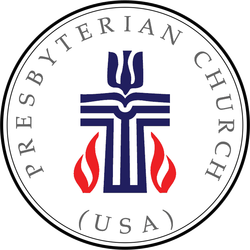Week 4 - Confession
Spiritual Disciplines can be divided into some sub-categories that help us classify and understand them. There are inward (prayer and fasting) and outward (service and submission) disciplines. Disciplines can be private (again fasting and prayer) and public (like acts of worship). The discipline I want to talk about could fall into either ‘private’ or ‘public.’
Let’s talk about Confession. When I say ‘confession’ I do not mean ‘confessing’ Jesus as Lord- which most people find quite easy to do and is an important part of the church’s life. This is confession of sin and this is harder, and more painful, because it takes my sin out of the realm of vagueness and makes what I do against God’s will apparent and real to my eyes. If I’m confessing my sin then I can’t hide from any of them.
Augustine says in his great work Confessions, “The confession of evil works is the beginning of good works.” We are made to confess who and what we are. We are made to be honest. At the root of the first sin of the Bible, God was pressing Adam and Eve for a confession in Genesis 3:11. He asked them, “Have you eaten from the tree of which I commanded you not to eat?”(taken from the NRSV) Would they admit they did something they were instructed not to do or would they continue to sin by choice and ignore God? As we know, they did not confess and were expelled from the garden because of it.
Now this is a very hard one to practice. You can’t go marching up to a total stranger and pour out your sins before them and expect them to understand what you’re doing. In fact, it is hard to do in the church. But we are made to be accountable to God for our sins. As I said at our Lenten worship times, “we as Presbyterians have a confession of sin in all our services.” Certainly God will forgive the sins we commit, but the act of speaking out to God the sins which we do- specifically- is very hard as it is very humbling.
Many of us forget that when the confessional system was introduced into the church it sparked times of revival. Personal piety and holiness followed because we understood our choices and we worked harder to imitate Christ as we wished to leave behind sinful behaviors. We prayed; we sought forgiveness out of a deep sense of contrition and despair. Then when we felt God come and forgive us joy poured out of us like a great flood of emotion that we could not contain.
So this time as you practice the discipline, try speaking out your sins to God directly, vocally. Do not simply say to the Lord, “Father, forgive me for I’ve sinned.” We’ve all done that and he knows that! Instead, tell him what you’ve done and be specific- very specific. Acknowledge what you’ve done wrong and how you will choose to do it again because you were born into sin.
Sin feels good and God knows it. There is no shame in being honest with God about the sins of your day or week. He listens and forgives. Be prepared to feel God calling you to deal with your sin in a definite manner. Be prepared if you adopt this discipline to hear God address choices in your private life about how you speak, the language you use, the judgments you offer. Be prepared to look deep into yourself with God’s help.
Again one final example to consider, remember Jesus’ words in the Sermon on the Mount concerning anger. Because you have harmful, angry thoughts against a sister or brother of Christ you are guilty of greater evils that just being angry with them. Be ready, if you adopt this discipline, to deal with definite sins and judgment statements. God will be with you if take on this discipline.
Let’s talk about Confession. When I say ‘confession’ I do not mean ‘confessing’ Jesus as Lord- which most people find quite easy to do and is an important part of the church’s life. This is confession of sin and this is harder, and more painful, because it takes my sin out of the realm of vagueness and makes what I do against God’s will apparent and real to my eyes. If I’m confessing my sin then I can’t hide from any of them.
Augustine says in his great work Confessions, “The confession of evil works is the beginning of good works.” We are made to confess who and what we are. We are made to be honest. At the root of the first sin of the Bible, God was pressing Adam and Eve for a confession in Genesis 3:11. He asked them, “Have you eaten from the tree of which I commanded you not to eat?”(taken from the NRSV) Would they admit they did something they were instructed not to do or would they continue to sin by choice and ignore God? As we know, they did not confess and were expelled from the garden because of it.
Now this is a very hard one to practice. You can’t go marching up to a total stranger and pour out your sins before them and expect them to understand what you’re doing. In fact, it is hard to do in the church. But we are made to be accountable to God for our sins. As I said at our Lenten worship times, “we as Presbyterians have a confession of sin in all our services.” Certainly God will forgive the sins we commit, but the act of speaking out to God the sins which we do- specifically- is very hard as it is very humbling.
Many of us forget that when the confessional system was introduced into the church it sparked times of revival. Personal piety and holiness followed because we understood our choices and we worked harder to imitate Christ as we wished to leave behind sinful behaviors. We prayed; we sought forgiveness out of a deep sense of contrition and despair. Then when we felt God come and forgive us joy poured out of us like a great flood of emotion that we could not contain.
So this time as you practice the discipline, try speaking out your sins to God directly, vocally. Do not simply say to the Lord, “Father, forgive me for I’ve sinned.” We’ve all done that and he knows that! Instead, tell him what you’ve done and be specific- very specific. Acknowledge what you’ve done wrong and how you will choose to do it again because you were born into sin.
Sin feels good and God knows it. There is no shame in being honest with God about the sins of your day or week. He listens and forgives. Be prepared to feel God calling you to deal with your sin in a definite manner. Be prepared if you adopt this discipline to hear God address choices in your private life about how you speak, the language you use, the judgments you offer. Be prepared to look deep into yourself with God’s help.
Again one final example to consider, remember Jesus’ words in the Sermon on the Mount concerning anger. Because you have harmful, angry thoughts against a sister or brother of Christ you are guilty of greater evils that just being angry with them. Be ready, if you adopt this discipline, to deal with definite sins and judgment statements. God will be with you if take on this discipline.

